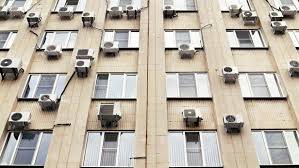
Breaking News
John Sneisen - Outernet and Canadian Economy
 "You Will be Programmed and Enslaved Through AI" - Iain Davis
"You Will be Programmed and Enslaved Through AI" - Iain Davis
 $80 SILVER IN CHINA RIGHT NOW - The Premium Explosion Means Squeeze Incoming
$80 SILVER IN CHINA RIGHT NOW - The Premium Explosion Means Squeeze Incoming
 Do you want to really know what the banks are doing about their silver situation?
Do you want to really know what the banks are doing about their silver situation?
Top Tech News
 EngineAI T800: Born to Disrupt! #EngineAI #robotics #newtechnology #newproduct
EngineAI T800: Born to Disrupt! #EngineAI #robotics #newtechnology #newproduct
 This Silicon Anode Breakthrough Could Mark A Turning Point For EV Batteries [Update]
This Silicon Anode Breakthrough Could Mark A Turning Point For EV Batteries [Update]
 Travel gadget promises to dry and iron your clothes – totally hands-free
Travel gadget promises to dry and iron your clothes – totally hands-free
 Perfect Aircrete, Kitchen Ingredients.
Perfect Aircrete, Kitchen Ingredients.
 Futuristic pixel-raising display lets you feel what's onscreen
Futuristic pixel-raising display lets you feel what's onscreen
 Cutting-Edge Facility Generates Pure Water and Hydrogen Fuel from Seawater for Mere Pennies
Cutting-Edge Facility Generates Pure Water and Hydrogen Fuel from Seawater for Mere Pennies
 This tiny dev board is packed with features for ambitious makers
This tiny dev board is packed with features for ambitious makers
 Scientists Discover Gel to Regrow Tooth Enamel
Scientists Discover Gel to Regrow Tooth Enamel
 Vitamin C and Dandelion Root Killing Cancer Cells -- as Former CDC Director Calls for COVID-19...
Vitamin C and Dandelion Root Killing Cancer Cells -- as Former CDC Director Calls for COVID-19...
 Galactic Brain: US firm plans space-based data centers, power grid to challenge China
Galactic Brain: US firm plans space-based data centers, power grid to challenge China
Richard Branson launches $3m challenge to reinvent the air conditioner

As the world continues to warm, you can expect more and more folks to be turning to air conditioners to keep their living environments cool and comfortable. And in that sense, this energy-intensive technology will do plenty to exacerbate the very problem it is designed to solve. The Global Cooling Prize is a competition to help stop runaway climate change, by dangling US$3 million in prize money for the development of more energy-efficient cooling solutions.
The Global Cooling Prize is backed by the Indian government among other partners, with Richard Branson taking on the ambassadorial duties. The organizers make a pretty compelling case regarding the need for a rethink in how we currently cool our homes. They say that there are around 1.2 billion room air conditioning units in action around the world today, and the most efficient of these operate at around 14 percent of the maximum theoretical efficiency. As a comparison, investments in R&D have led to products like LED lights that operate at up to 89 percent efficiency.
Meanwhile, a further 3.3 billion room air conditioners are expected to be installed between now and 2050, with little being done to make them more efficient. According to the competition organizers, this is because the industry focuses on lowering individual unit costs at the point of sale rather than their running costs (and energy usage) over time.
So, this is where they see an opportunity to shake things up. Much like the XPrize competitions that seek to inspire technological solutions to societal problems, the Global Cooling Prize will offer up some serious prize money for inventors who can meet a set of carefully designed criteria.
Entrants are tasked with developing an air-cooling technology that can be installed in existing homes and have five times less climate impact than a current baseline unit, at no more than twice the cost. Its power consumption at full load must not exceed 700 W and it mustn't consume more than 14 L (3.7 gal) of water per day.



